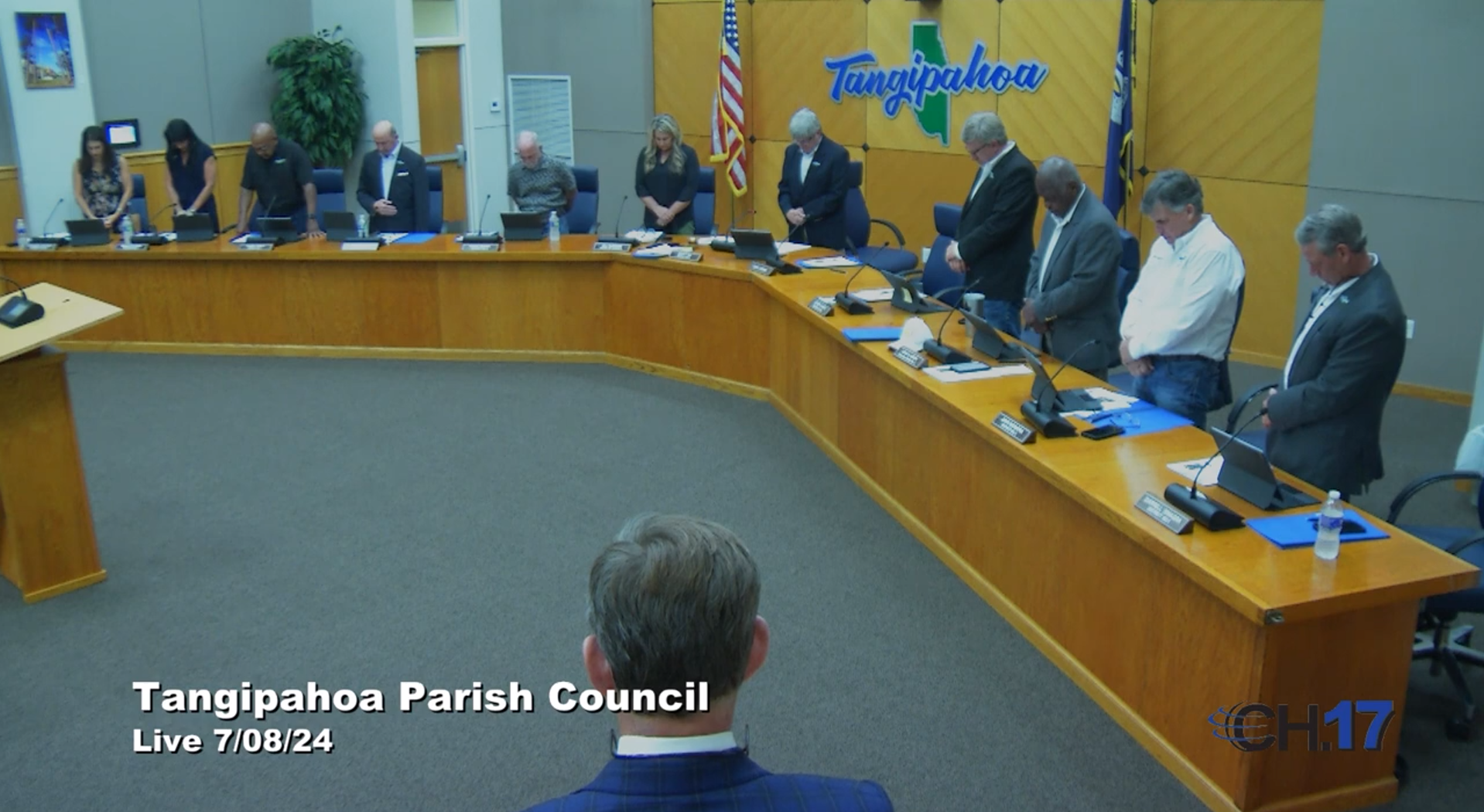Tangipahoa Parish Listens to Law Enforcement Over Science, Bans Kratom
TANGIPAHOA PARISH LISTENS TO LAW ENFORCEMENT OVER SCIENCE, BANS KRATOM

Months after deciding against a local kratom ban, one municipality in Louisiana came back with a vengeance to ban the plant for sale behind a unanimous vote by the parish council.
A second attempt at a kratom ban was heard less than two months after the initial discussion was tabled. This time, the Tangipahoa Parish Council leaned on law enforcement to take up the cause of banning kratom for local sale. That set the stage for a final vote at the next meeting, following a public comment period.
Despite pushback from kratom users and business owners in the community, the ban was enacted unanimously.
The issue of kratom availability in Tangipahoa Parish was first introduced this spring, with the council ultimately tabling the discussion with the idea of letting the legislature handle the matter. That changed when a presentation was made to the council at a meeting in July.
Leaving Facts Behind
During the July 8, 2024 meeting of the Tangipahoa Parish Council, a discussion item was introduced to hear from “a pharmacist and law enforcement” on the legality of kratom. Although the pharmacist was named and appeared at the meeting, Captain Tom Wheeler of the Tangipahoa Parish Sheriff’s Office handled speaking duties in front of the council.
In a presentation that mostly just restated the opinion of the top Google searches on ‘Is kratom safe?’, without any factual basis or data provided, Wheeler painted a picture of kratom that goes far beyond the fear tactics typically used by opponents of the plant.
“We are seeing some of our big drug dealers using kratom to make their products go further and give the same effects,” Wheeler said.
The only factual basis for Wheeler’s assertions was web pages hosted by the Mayo Clinic and the Drug Enforcement Agency that include outdated warnings and are not backed by scientific studies. That didn’t stop him from painting a skewed picture of kratom.
Wheeler said that drug dealers would extend products due to kratom’s versatility. According to Wheeler, green vein kratom has the same effects as heroin, white vein kratom mimics cocaine and red vein kratom is a substitute for methamphetamines. Most of what Wheeler said in his presentation could be debunked by readily available information from the Food and Drug Administration and the National Institute on Drug Abuse.
“It comes from the southeast providence (sic) of China,” Wheeler stated incorrectly. “That’s where fentanyl comes from as well.”
A province is a country's sub-division; providence is a spiritual power's protective care. Kratom is recognized as indigenous to Cambodia, Thailand, Indonesia, Malaysia, Myanmar and Papua New Guinea–not China. Fentanyl is a synthetic opioid that can be manufactured in labs across the world.
The inability to grasp simple facts about kratom extended to voices on the council that opposed the plant.
One councilor incorrectly guessed that two states had made it a controlled substance, and named Illinois as one of those states. Several local municipalities in Illinois have banned kratom, but the plant remains legal and unregulated at the state level. When the matter was brought to a vote, that same councilor asked if they could make possession of kratom illegal as well, but that idea was dismissed as a possible future step by the mayor.
A unanimous vote at the July 8 meeting led to a public comment period to begin the next meeting, on July 22, where the full council would vote on the measure. When the public comment period opened, the same local voices who opposed the first attempt to ban kratom pleaded with the council to listen to the science.
Public Pushback on “Misinformation”
Paul Schexnaydre is a veteran who uses kratom as part of his daily routine and testified in May about how he was worried such a ban on kratom would eventually lead to him being labeled a criminal. Following Wheeler’s testimony, Schexnaydre had a new focus: Addressing and correcting the “drastic form of misinformation that can only hurt people.”
“I don’t think this state needs more regulation. It’s just hurting us, the common man,” he said.
Adam Peak and Leann Pierson are married and co-own a smoke shop in Baton Rouge, and continued to explain how banning kratom could negatively affect local consumers. Banning kratom in the parish would only encourage local kratom users to seek out a different source, which Peak said would put local customers at risk.
“Banning this substance is not going to protect people. People are going to find alternative sources that they can’t visually see in front of them to figure out if they’re getting an adultered product,” Peak said.
Pierson told her story of how kratom affected her daily routine and spoke about the positive effects of keeping kratom accessible in the community. There were no public comments against kratom.
The council made no comments during the voting period, and the ordinance passed by a 10-0 vote. Although the council offered no reaction to the public comments, Schexnaydre had his idea about where the motivation to ban kratom came from.
With the council openly debating the “future steps” that could include banning possession of kratom, a plant-based product that is legal at both the state and federal level in Louisiana, Schexnaydre suggested the long-term goal of the project could be to add one more route to do what his state does best: Incarcerate its residents.
“At the last hearing, when that sheriff did speak, it felt that the voices of the people were completely disregarded,” he said. “I saw complete, non-fact-based lies being spread, and I know why. Louisiana’s incarceration rate is ranked highest in the nation while our education is ranked last.”
Editor's Note: Tangipahoa Parish revisited the decision not to ban kratom and instituted a ban on selling kratom in the parish during the council's July 22, 2024 meeting. Full coverage of that meeting can be found here.





